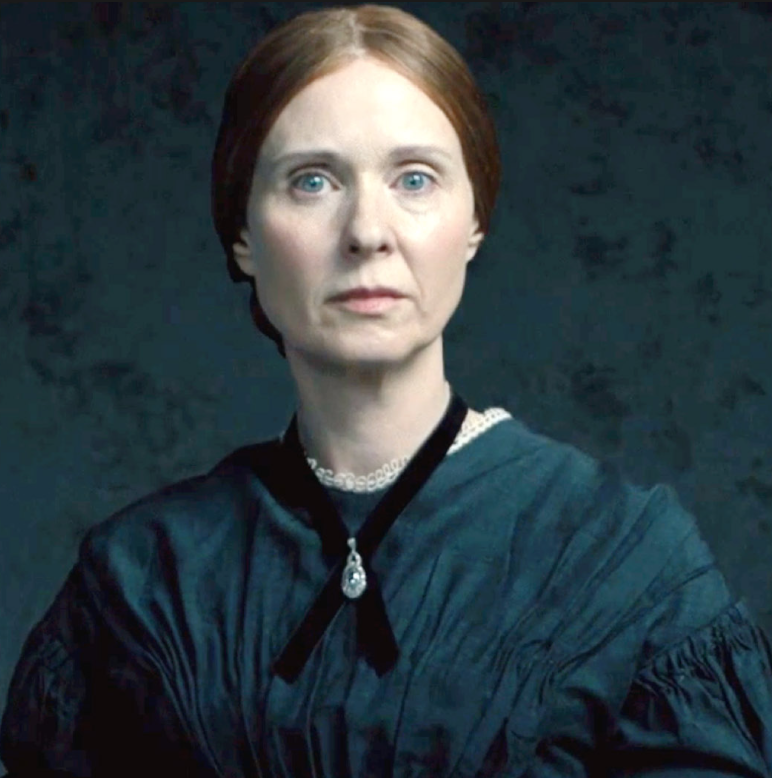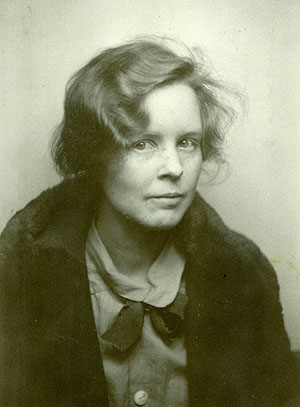Archive | Essays
I’m Everybody! Are You Everybody Too?
 I slipped into the theater as Cynthia Nixon was cooing to a newborn: “I’m nobody! Are you nobody too?”
I slipped into the theater as Cynthia Nixon was cooing to a newborn: “I’m nobody! Are you nobody too?”
It was the newly renovated Quad Cinema, and I’d scored a ticket because I was presenting the Emily Dickinson film, “A Quiet Passion,” to a cinema club later in the week. Normally I would not be spending such a beautiful afternoon indoors, but I’d had a terrible writing morning—the sort that robs one of all confidence and joy—and I was keen to get out of my house, neighborhood, and head, in exactly that order.
The new Quad seemed a lot like the old Quad, down to ticketing confusion and the long, skinny screening rooms with tiny screens, but the seats were more comfortable and the film a stately swoon. I settled into the story that had begun 20 minutes before my arrival, and tried to block everything out.
Dickinson was bright and glaring in her strong tempers, with the knit brow and bitten lip of a nineteenth-century woman heeding too many wrong lessons. She and her kin bickered against the austere backdrop of their Amherst estate, and I sat back against red cushions and exhaled in pleasure. This was not the New England of so many films-forbidding and confined to a palette of greys and more greys. This was the New England I miss 25 years after emigrating to New York: amused and amusing, with bursts of colors so extravagant that there’s no point in competing with your own person. Continue Reading →
The Magic Social Realism of Alice Neel
 Born January 28, 1900, the painter Alice Neel grew up with the twentieth century, though significant success eluded her until the sixties. A true Aquarian, she was built for that decade of upheaval. Today, her hard gems of truth and beauty continue to find new audiences. I believe this is because her work, like Neel herself, was not just a product of its time but a harbinger of times to come.
Born January 28, 1900, the painter Alice Neel grew up with the twentieth century, though significant success eluded her until the sixties. A true Aquarian, she was built for that decade of upheaval. Today, her hard gems of truth and beauty continue to find new audiences. I believe this is because her work, like Neel herself, was not just a product of its time but a harbinger of times to come.
Neel first came on my radar as I was rushing through a gallery of contemporary paintings at the Brooklyn Museum of Art, were I screeched to a full stop in front of her 1974 portrait of former museum department head John I. H. Baur. With a palette of slate and ochre and a bold, almost slapdash brushstroke, she’d conveyed him as an institutional hack and a bemused enabler. It was rueful and rich, and though I hurried on, when I saw the Zwirner gallery was hosting a show of her work, I hurried right there as well.
These paintings of her family, neighbors, friends, lovers, and political comrades in Spanish Harlem and the Upper West Side are not perfect. In some cases, they could ask more, tell more.  But they resonate as few twentieth-century portraits do because they are so vibrant and cock-sure – so defiantly gripping.
But they resonate as few twentieth-century portraits do because they are so vibrant and cock-sure – so defiantly gripping.
Hilton Als reviews theater, not fine arts, for The New Yorker. Yet he curated this Zwirner exhibition, perhaps because Neel’s intensely democratic curiosity mirrors his own. (His Neel book will be released this June.) In a catalog essay, he shares what this child of West Indian immigrants, raised in deep Brooklyn to become a Pulitzer Prize-winning journalist, initially recognized in her work Continue Reading →

